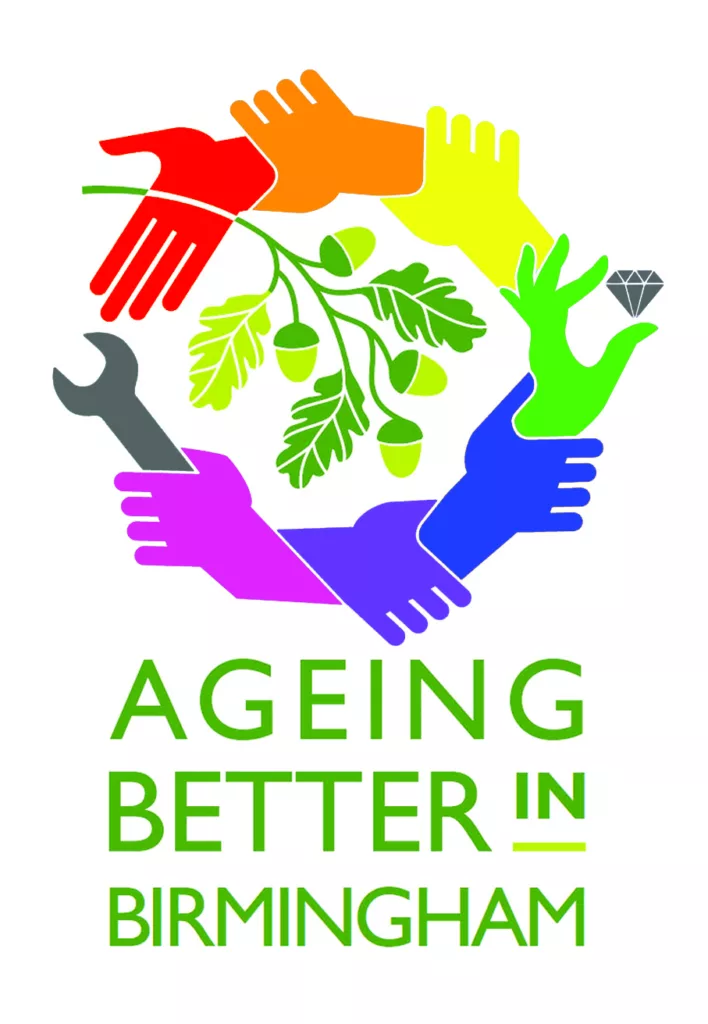By our Ageing Better Network Enabler (community development worker), Maria Hughes.
Lockdown, self-isolation, shielding . . . if your job is to facilitate bringing people aged 50 and over together in social groups, to combat social isolation, a global pandemic can severely hamper your efforts.
Research has shown that being socially isolated and lonely lead to poorer health in the long-term, yet physical isolation has been necessary to prevent the spread of Covid-19, to protect the health of older, vulnerable people, in the here-and-now.
Figuring a way out of this ‘Catch 22’ has been the focus of the Ageing Better in Birmingham* programme since April, the start of the programme’s final year. I have been working alongside other partners to find out how community groups are coping and what they are doing to keep going and maintain contact with their members. I’ve heard ideas from across the other four ‘Hubs’ of Ageing Better – Tyburn Hub, Sparkbrook Hub, City-wide Hub and Carers’ Hub – and I’ve been in contact with the community groups that our LGBT Hub has been working with to learn what they’ve achieved and what I can do to give further support.
It has been really encouraging to see the efforts LGBT organisers and group members have been making to keep in touch, take care of each other and organise activities that are safe to run. Many groups have gone online, holding social and discussion meetings, playing games and sharing creative ideas. Others have kept in touch by phone and social media apps, not just to socialise but to ensure members have their needs for supplies and medicines are being met. A different kind of resilience is coming to the fore, and even when groups can meet again in person (albeit in a socially-distanced way), the initiatives they have put into place will ensure that members who are unable to join in person can still participate and feel very much part of a group.
I am very grateful for all of the LGBT group organisers and members who have taken time to talk to me about the difficulties they are facing, so that I can work with Ageing Better to adapt our support options. We are still learning as we go, and now it’s possible for small, socially-distanced groups to meet in person, we will continue to learn how this is being put into place and sharing what we’ve learned with community groups across Birmingham. Some groups are keen to continue to connect virtually with members who can’t attend in-person activities for whatever reason, seeing this as a positive option to offer, not just a quick fix for the way things are now. There are aspirations to connect with other groups across the country, from peer-support for people living with HIV, to tips for dog owners, via online Dungeons & Dragons, connecting LGBT+ people of all ages.
I’ve found the ingenuity and caring of the LGBT+ communities – the ability and drive to make ‘something out of nothing’ – very rewarding during my time working on this programme, and it’s been particularly uplifting for me during our current situation. Self-run community groups are vital to the wellbeing of LGBT+ people, and I’m proud to have played a part in keeping them sustained and connected.
If you want to find out more about LGBT community groups and their activities, contact Maria via email: mariahughes@blgbt.org, and visit our Events calendar: https://blgbt.org/events/.
*one of 14 programmes across England, funded by the National Lottery Community Fund, to reduce social isolation and loneliness in adults aged 50 and over, through community-based activity.

